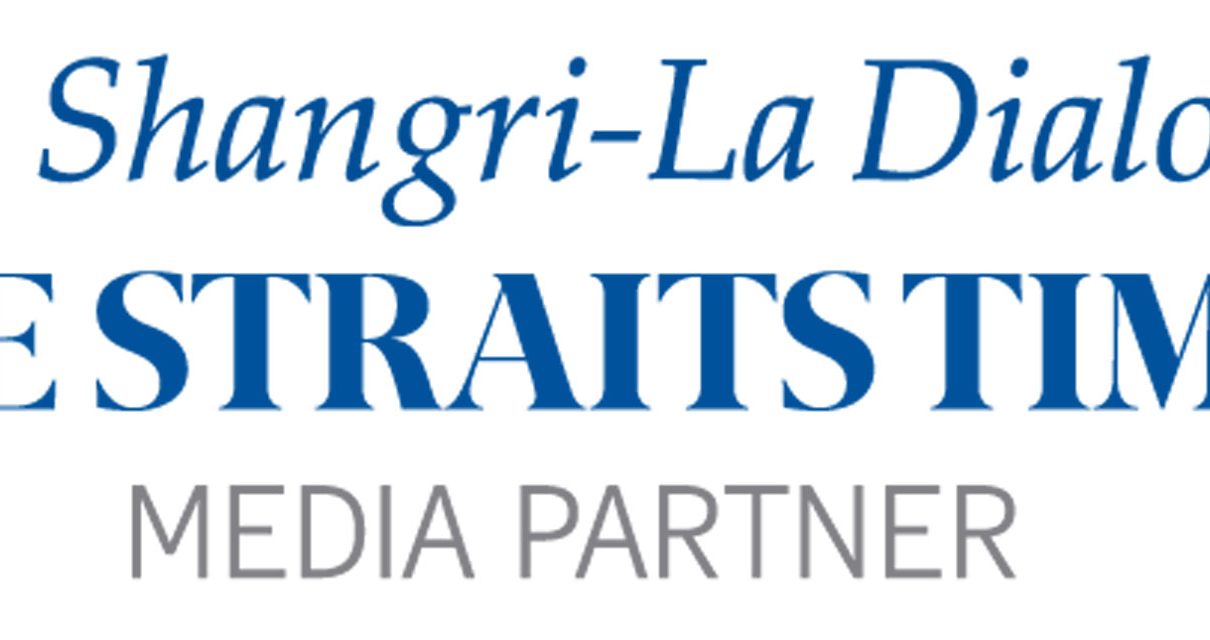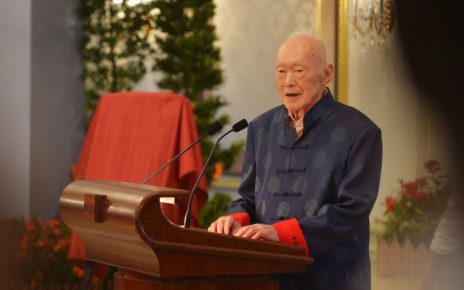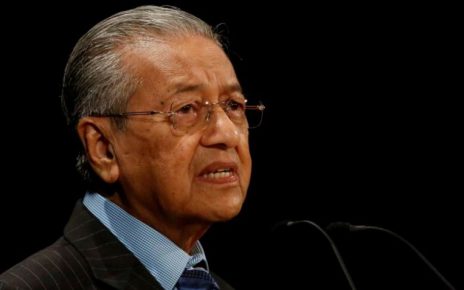The Indo-Pacific region is a “priority theatre” for the United States, where it will support partner nations against domination by any one nation, Acting US Defence Secretary Patrick Shanahan said yesterday as he presented the latest iteration of America’s geostrategic vision for the region.
“I am here to affirm the US’ enduring commitment to the Indo-Pacific region and to the values that keep it secure and prosperous, free and open,” he said in a speech on the second day of the Shangri-La Dialogue, the annual gathering of defence ministers, military officials and security experts in Singapore.
“The Indo-Pacific is our priority theatre. We are where we belong,” he said, using the Trump administration’s term encapsulating the vigorous security-cum-diplomatic initiatives the US is pursuing in the Asia-Pacific.
“Our shared geography has spurred the integration and linkage of our economies: America’s annual two-way trade here is US$2.3 trillion (S$3.2 trillion), and US foreign direct investment is US$1.3 trillion, more than China’s, Japan’s and South Korea’s combined,” he said, seeming to rebuff some attempts by Beijing to portray the US as an outside power provoking disquiet in the Asia-Pacific.
His speech coincided with the Pentagon’s release of the Indo-Pacific Strategy Report. The report carries a preface by Mr Shanahan where he bluntly says: “China, under the leadership of the Chinese Communist Party, seeks to reorder the region to its advantage by leveraging military modernisation, influence operations, and predatory economics to coerce other nations.”
In his remarks yesterday, striking for their exposition of the US’ security, economic and trade linkages in the region, he was less direct, noting at one point: “No one nation can or should dominate the Indo-Pacific.” At another, he said: “We compete with China where we must.”

He drew attention to the Trump administration’s reversal of Obama-era budget cuts to invest in military modernisation.
“This represents an enormous opportunity for our allies and partners,” he said. “The US is rapidly developing the technologies critical to deterring and defeating the threats of the future. Partners who pursue interoperability with us as part of a regional security network will be able to access much of these technologies and benefit from the compounding effects of US investments and progress.”
He also pressed Asia-Pacific nations to do their part to maintain their ability to make decisions in their own interest.
“We are investing in the region. We are investing in you, and with you. And we need you to invest further in yourselves,” he said, seeming to echo President Donald Trump’s call to Nato partners to increase their defence contributions.
“We need you to invest in ways that take more control over your sovereignty and your own ability to exercise sovereign choices,” he said. Although he did not say so explicitly, his remarks appeared directed at China, which has acquired a higher profile in the region under President Xi Jinping.
Mr Shanahan’s speech marks at least the fourth time that the US is advocating its Indo-Pacific strategy, after Mr Trump first spoke about it at an Asia-Pacific Economic Cooperation (Apec) summit in Vietnam in 2017. Vice-President Mike Pence dwelt on it at last year’s Apec summit in Papua New Guinea, while Mr Shanahan’s predecessor James Mattis revisited it at the Shangri-La Dialogue last June.
Mr Shanahan presented his Indo-Pacific vision as one that the US had long anchored. “This is not new nor exclusively an American vision; this is an inclusive and enduring approach, embraced by almost all of us who call the Indo-Pacific home.”
Foremost among the three differentiating factors in the 2019 version was money. “In the past, we had strategy, we didn’t have the resources, we didn’t have the funding,” he noted while answering a question after the speech.
The other was the US determination not to “ignore Chinese behaviour”, he said.
“In the past, people have kind of tiptoed around that. It’s not about being confrontational, it’s about being open and having a dialogue.”
The third would be seeking a “deeper and broader engagement” with the region, he said.
In what might sound reassuring to South-east Asia’s policymakers, he made a reference to Asean centrality, although he was markedly less emphatic than Mr Mattis, who had harped on the theme four times during his speech.
“Regional institutions, like Asean, retain their centrality,” Mr Shanahan said, in an acknowledgement of the grouping’s insistence that it should be in the driver’s seat in the region where both the US and China have vital roles to play.



